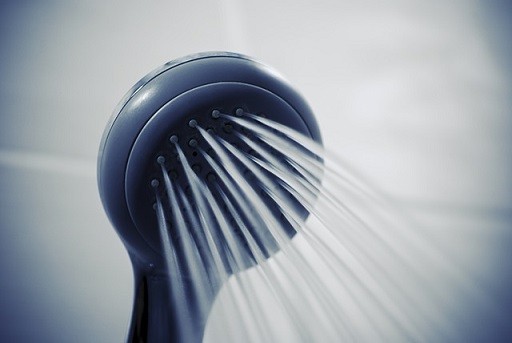Showers are meant to be relaxing baths that comfort and cleanse the body, but sometimes the shower water can be noticeably hard and result in an unenjoyable showering experience. Hard water showers are known to be quite problematic, especially as the main water types in areas most prone to having hard water.
Hard water comes with a much higher mineral concentration compared to soft water and is formed when water travels through mineral-rich surfaces. As the water travels across surfaces with high mineral content, it collects some of the mineral ions and becomes hard with minerals like magnesium and calcium. The nuisance and issues caused by hard water are a struggle shared by many. Fortunately, there are numerous solutions available that resolve the issues of hard water and how to get soft water for shower.

Issues Caused by Hard Water
Even though hard water may not cause any significant or immediate health issues, the mineral-dense liquid is still bothersome and can cause quite an inconvenience throughout an area.
Skin Dryness and Irritation
Hard water affects the skin and becomes noticeable through regular showers with hard water. Given its high mineral concentration, hard water reacts with the used soap and leaves thin soapy films throughout the skin after it dries. The soapy film then results in skin dryness and irritation, which is especially quite a nuisance for those with sensitive skin.
The minerals found in hard water can also be left on the skin as mineral deposits, which can also lead to irritated skin since the minerals can affect the skin’s natural moisture content. Since hard water can leave mineral deposits, which can clog and block pores, the skin may react with dryness, irritation, and redness.
Hair Damage
Hard water can damage hair with its mineral contents by covering the hair follicles with mineral deposits. The mineral coating throughout the hair follicles acts as a barrier against any shampoo, hair conditioners, and moisturizers. With the minerals as a barrier, the hair will not absorb any of the cleansing and moisturizing benefits of the shampoo and conditioner, which leads to dry and brittle hair over a period of time.
Soap Scum
The mineral deposits left by hard water do not only stick to the hair and body but they can also be left throughout a shower, which can leave chalky and white stains where the hard water came in contact. Soap scum appears white in color and can combine with other residues like the soapy film and limescale, which can create some ugly messes and stains. Layers of soap scum are difficult to keep away since not only are they tough to remove and highly resilient, but they also form rather quickly throughout areas having regular contact with hard water.
Uncomfortable Showering Experience
Showering with hard water is no pleasant experience since the mineral content makes it troublesome to wash and cleanse the body. Not only is it difficult to rinse the body, but it is also a struggle to even lather the body with moisturizers and soap. Overall, the shower experience is inconvenient and uncomfortable.
Soft Water Benefits in Shower
Hard water throughout a home should be given more attention given how much of an issue and nuisance it can cause when left unchecked. Although hard water may not cause any alarming issues, soft water proves to be significantly more beneficial for showering and general use throughout a home.

Softer Hair
Unlike hard water shower, soft water is easier on the hair since it does not have any minerals that can stick onto hair follicles. Soft water allows the hair to freely take in the cleansing and moisturizing aspects of shampoos and conditioners, which results in vibrant and soft hair with a natural and shiny glow.
Supple and Softer Skin
Hard water will only make showering a displeasing experience, especially for those with sensitive and dry skin. Transitioning from hard to soft water will prove to show some immediate and noticeable differences throughout the skin. With soft water, the skin is cleansed without virtually no signs of residue and excess remnants, which will leave the skin feeling rejuvenated and cleansed after the shower.
Improved Soap Efficiency
Soap is likely to be more difficult to lather and rinse on the body with hard water, which ultimately results in more water and soap usage. Soft water, on the other hand, will require much less water usage since it is easier to apply and cleanse the body with soap. Over time, more efficient use of water and soap through soft water will save much time and money.
Methods of Softening Hard Water
Clearly, soft water is far better and more beneficial compared to hard water since it not only results in an overall better showering experience, it can also save much time and money on water expenses, soap usage, and time spent showering. Now, we proceed to learn about how hard water can be softened into soft water through the following methods.
Potassium Chloride Water Softeners
Potassium chloride is known to be environment friendly and effective in water softening without leaving any salty tastes in the water. Furthermore, potassium chloride can enhance the watercolor, making it appear more rich and natural. Despite its high efficiency and additional benefits, potassium chloride is more on the expensive side compared to other softeners with sodium. Also, potassium chloride does not do well in filtering the water of contaminants.
Sodium-based Water Softeners
Water softeners containing sodium are considered the go-to among many since it is the most widely known and popular. Especially throughout many homes, sodium-based softeners are the most commonly used. Sodium-based softeners ensure a highly effective water softening mixture that is safe for use throughout a house. On top of their superb efficacy, sodium softeners are quite inexpensive and prove to be very cost-effective.
Utilizing sodium-based water softeners means they require the use of salt bags, which are also fairly low-cost. Applying and maintaining soft water is made easy through a sodium water softener for shower since they do not need much effort to use. Also, they are highly effective at removing stains containing magnesium and calcium, while also eliminating the water of its mineral taste, which is a solid bonus nonetheless.
On the contrary, eliminating the water of its mineral taste also means it will leave the water tasting salty, which some would find unpleasant.
Magnetic Water Conditioners
Magnetic water conditioners are installed onto the waterline and create a magnetic field designed to modify the water of its contaminants, salt levels, and mineral content. Using magnetic water conditioners, the mineral ions found in the hard water are detached from one another, which results in softened water that will more easily run through the water lines. Also, the softened water will be easier to drain, which helps prevent buildup and contamination in the shower.
In addition to its clever solution, magnetic water conditioners are among the most affordable solutions for softening any hard water. Water conditioners are also impressively low maintenance since they do not require any supplementary chemicals to operate.
However, magnetic water conditioners are technically not categorized as water softeners and do not eliminate hard water of its calcium and magnesium content. The solution is designed as a water conditioner that enables smoother water flow and its efficacy is limited since it will not be as effective on greatly heavy and hard water.
Water Softening Network System
Softening hard water is proven to be most efficient and effective through the implementation of a water softening network or system. Installing a water softening system with a water softener shower head is considered to be the best method since it allows the user to customize and design the system to specifically treat hard water depending on the water and its mineral concentration and contents. An excellent example of a practical system is a reverse osmosis filtration system. Through the comprehensive filtration system, the hard water will be filtered of its strong minerals like magnesium and calcium. Also, the filtration design can remove unwanted residue from the water like contaminants and any bad tastes or pungent smells. Although its efficiency in removing minerals from the hard water is impressive, the efficacy is known to be excessive and wasteful since it uses up much water and removes virtually all signs of minerals, which happens to include the healthy and harmless ones.
Conclusion
Showering with soft water is obviously the way to go and for an abundance of good reasons. Similar to its many benefits, there are just as many solutions to achieving soft water throughout a home and its showers. This allows homeowners to select from a wide range of water softening solutions and how to get soft water for shower to pick out the most suitable and appropriate one for their home and needs. Given the numerous options, it would also be a great idea to mix and match the water softening solutions, since applying more than one opens up opportunities for finding the best possible solution.
FAQ about How to Get Soft Water for Shower
To soften your kitchen water, boil it! If you’re looking for a natural way to cleanse and condition hair as the final steps in putting away hard-water minerals then apple cider vinegar or lemon juice will help.
Hard water can make cleaning more challenging, but washing soda added to the mixture will help minimize negative effects by chemically reacting with mineral deposits in the water.
0 Comments for “How to Get Soft Water for Shower: The Best Way to Improve Bathing Experience”